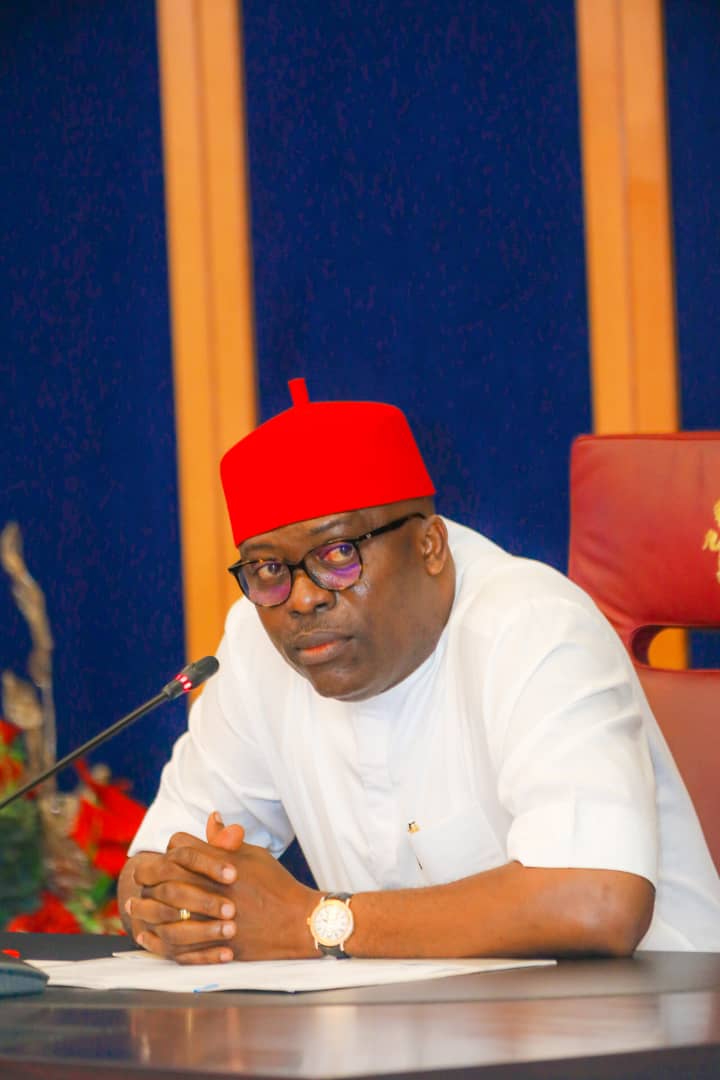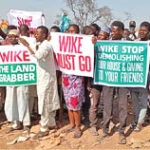The ongoing political feud between Governor Siminalayi Fubara of Rivers State and his predecessor, now Minister of the Federal Capital Territory (FCT), Nyesom Wike, is stirring significant unrest in a state critical to Nigeria’s economic stability. Rivers State, with its vast oil reserves, serves as the economic nerve centre of the country. Any instability here poses a direct threat to the country’s economic health, especially in a region historically known for its armed groups and tribal warlordism.
Having served in Rivers State during my National Youth Service and written both my Masters and PhD theses on the Niger Delta at UK universities, I have studied the complexities of the region deeply and understand the delicate balance that maintains peace. This balance is now under serious threat.
Fubara’s rise to power was strongly supported by Wike, who wielded immense political influence during his time as governor. Wike’s accomplishments in infrastructure development and governance earned him loyalty across Rivers State. However, the relationship between the two has soured as Fubara seeks to establish his own authority.
Despite his new federal role, Wike’s influence remains potent in Rivers, where his political base is still active. This has created a power struggle, with Fubara striving to assert his independence while managing the legacy of his predecessor.
- Hardship: It’s time to review your policies, PDP BoT tells Tinubu
- Plus Wallet Redefines Crypto Management with its Fast Listings & Rewards System While WallitIQ & Token Unlocks Shake Up The Market
One of the most concerning aspects of this conflict is the resurgence of tribal loyalties, particularly among the Ijaw people. During my doctoral research, I observed that in the Niger Delta, tribal solidarity often overrides allegiance to the Nigerian state, especially in times of political tension. This dynamic is now playing out, with the Ijaw people aligning themselves firmly behind Fubara, viewing him as a crucial figure representing their interests in the state.
The readiness to defend Fubara by all means necessary, as expressed by several stakeholders I’ve spoken to, shows the depth of tribal loyalty at play.
Former militants and other key actors in the region have indicated a willingness to protect Fubara, perceiving any attempt to undermine him as an attack on their tribe’s political standing. This alignment of tribal forces with political conflict poses a real danger in a state that has long struggled with militancy and insurgency.
The risk of this political conflict escalating into violence is real, and the consequences could be disastrous for both Rivers State and Nigeria as a whole.
The economic implications of instability in Rivers State are particularly grave. The state’s oil production is central to Nigeria’s economy, and any disruption in this sector could result in significant losses. Militant activities have historically targeted oil facilities, pipelines and other critical infrastructure, leading to production shutdowns and economic setbacks. If the current political feud continues unchecked, there is a real possibility of these militant groups exploiting the situation to reignite attacks, further crippling the state’s ability to contribute to Nigeria’s already fragile economy.
The tensions between Fubara and Wike require urgent intervention from President Bola Ahmed Tinubu. The Minister of the FCT, Wike’s national responsibilities should take precedence, and his involvement in Rivers State’s political affairs unnecessarily must be curtailed for peace’s sake. His continued influence in the state is not only undermining Fubara’s leadership but also fuelling unnecessary tension that could escalate into a full-blown crisis.
President Tinubu must step in to ensure that peace is maintained and that Wike respects Fubara’s authority to govern the state without interference.
The situation in Rivers State is precarious, and the signs are clear that tribal tensions are inflamed. The Niger Delta’s history of political violence is still fresh in our memories of how quickly conflicts can escalate in this region. The readiness of the Ijaw people to defend Fubara by all means necessary is a warning that the region is already on the brink.
If the feud between Fubara and Wike is not de-escalated, Rivers State could become the next flashpoint for conflict in the Niger Delta, with devastating consequences for Nigeria’s economy and national stability. The enemies of Nigeria are watching.
Given the economic and political importance of Rivers State, this is not a crisis that Nigeria can afford to ignore. The state’s oil wealth is critical to national revenues, and instability in the region could cripple the country’s ability to function. Moreover, the resurgence of militancy and tribal conflict would set back years of progress in stabilising the Niger Delta.
For the sake of peace and stability, President Tinubu must act swiftly. Wike must be called to order, and Fubara must be allowed to govern without interference. Rivers State’s future, and by extension Nigeria’s economic security, depends on responsible leadership at this crucial moment. The Niger Delta, already fragile, cannot afford another descent into violence.
As someone who has spent years studying the political dynamics of the Niger Delta and engaging with key actors in the region, I urge the federal government to act now to prevent further deterioration. The region is too important, and the risk of conflict is too great, to allow this feud to continue unchecked.
Rivers State is on the brink of becoming “fire next door,” and unless swift action is taken, Nigeria may soon find itself grappling with a crisis that could have been prevented.
Adam, Ph.D wrote from Maiduguri

 Join Daily Trust WhatsApp Community For Quick Access To News and Happenings Around You.
Join Daily Trust WhatsApp Community For Quick Access To News and Happenings Around You.


